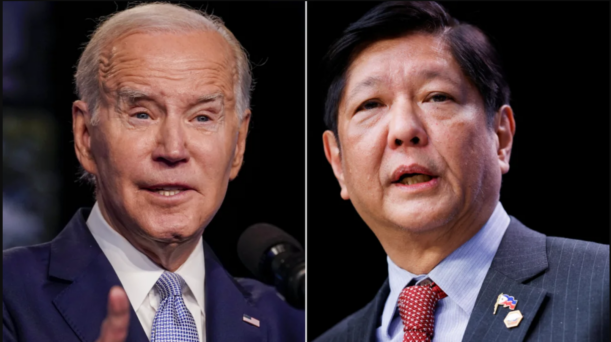This week, President Joe Biden is anticipated to welcome Philippine President Ferdinand Marcos Jr. to the White House as part of ongoing efforts to strengthen security and economic ties between the United States and the Philippines in the face of growing regional concerns about China’s assertiveness.
Senior administration officials described new steps and initiatives that will be announced this week, such as a new set of bilateral defense guidelines to strengthen the alliance and the transfer of US hardware – including three C-130 aircraft and additional patrol vessels – to support Manila’s efforts to modernize its military.

According to officials, additional initiatives to be announced include a US trade mission to the Philippines later this year and $3 billion in public and private financing to bolster infrastructure for critical minerals.
While Marcos is in town, Vice President Biden hopes to forge closer ties with the Philippines.
Biden will reaffirm Washington’s “ironclad” security commitment to the Philippines during his meeting with Marcos, according to officials. A mutual defense treaty signed in 1951 that stipulates both parties will assist in defending each other if either is assaulted by a third party remains in effect.
The visit of Marcos will conclude a month filled with bilateral engagements, as the expansion of defense ties between the two countries has alarmed Beijing. Over the past three weeks, thousands of American and Filipino personnel have participated in joint exercises.
And the United States recently hosted two of the Philippines’ most senior diplomats for discussions in which both parties agreed to finalize a plan for Washington to provide security assistance to its regional ally over the next five to ten years.
The United States contributed $100 million to Southeast Asia’s defense capabilities and military modernization last year. It also intends to allocate $100 million for the enhancement of US-accessible military bases under the 2014 Enhanced Defense Cooperation Agreement (EDCA).

In February, the Philippines granted the US military new rights to add four bases to the original five bases covered by the EDCA. Three of the new facilities are located on the main island of Luzon, near Taiwan, and one is located in the province of Palawan in the South China Sea.
China, one of the Philippines’ biggest trading partners, is increasingly vociferous about US-Philippine defense ties.
Last month, Beijing’s ambassador in Manila, Huang Xilian, accused the Philippines of “stoking the fire” of regional tensions by offering expanded military base access to the United States, claiming that the intention was to interfere with China’s relationship with Taiwan.
China’s ruling Communist Party has never controlled Taiwan, but it claims the self-governed island democracy as its own and has repeatedly refused to rule out seizing it by force – a threat that Manila perceives as a reason to increase its defenses with the assistance of the United States.
In response to Huang’s remarks, a spokesperson for Marcos’ National Security Council stated, “the Philippines has no intention of interfering in the Taiwan issue.”




